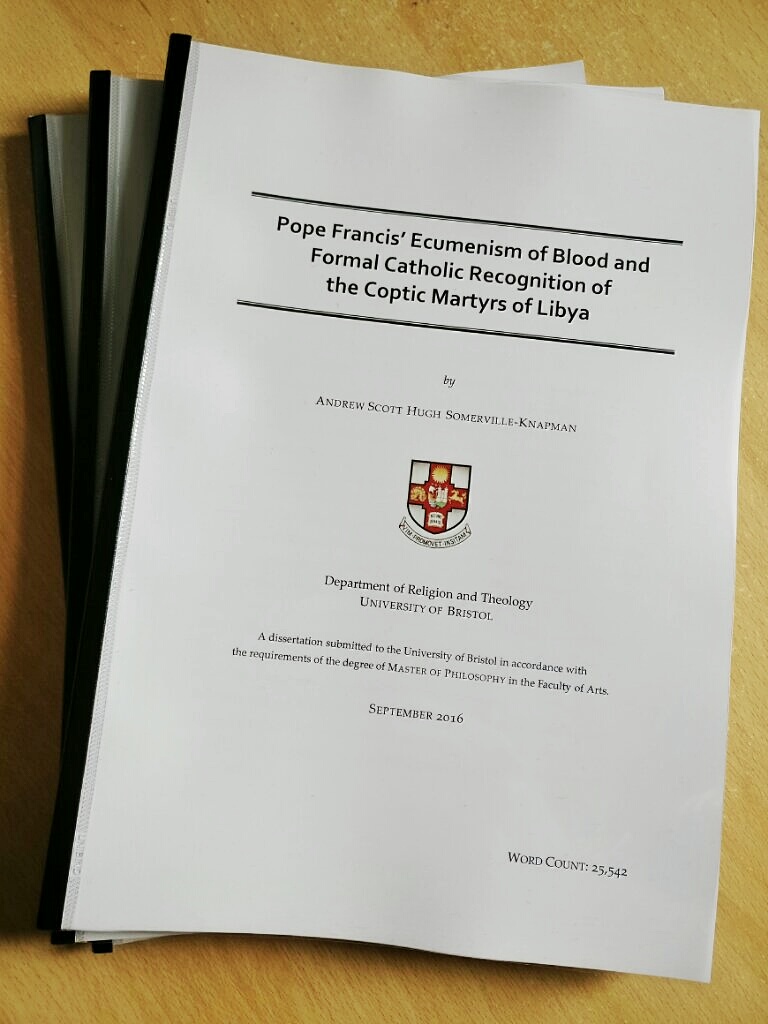The older I get the harder it is to make the long flight from London to Sydney in one trip. It is not that the planes are not getting better and the flights a little quicker. They are. Rather, the long-haul jet-set life is for the younger or at least the more acclimated.
One request fulfilled in my coming is to bring some relief to my family from the extraordinary heatwave of the past couple of weeks in Sydney. It was with pleasure that I saw the plane emerge to land from grey cloud, and to find on the ground a far more temperate temperature. Grey is not always bad; in some contexts it can be a relief.

Yet, in the wrong context an infusion of grey is not helpful. The current debate over the interpretation and application of Amoris Laetitia is a case in point. Over many years the Church has already developed a clear teaching on the sanctity and inviolability of Christian marriage, based squarely on the unequivocal teaching of Christ over against the Pharisees who had enshrined in law the “hardness of heart” that allowed divorce, and which Christ deplored. Christ had rejected the pharisaical grey in favour of divine black and white.
The Church’s perennial commitment to mercy produced a doctrinally-consistent safety valve in its mechanism of annulment, which enabled not the ending of a marriage that by divine decree was permanent, but by determining whether there had been a true marriage in the first place. Was one or other parties, or both, forced either directly or indirectly into marriage? Had one kept something secret from the other of an essential nature? Was one party, or both, not fully able to understand the commitment being made in marriage? If yes, then the Church saw that no marriage had been validly contracted despite the exchange of vows at a wedding. Whether one agrees or not with the startling assertion by Pope Francis that most marriages are invalid, it is certainly true that invalidity is possible and the discovery of this can be a mercy.
Also over many years the Church’s pastors have developed a pastoral practice that was able to discern the rare occasions when a divorced person is more sinned against than sinning, whose situation was was not able to be regularized for some good and not easily remedied reason. It is a tricky area for a pastor as it requires balancing the needs of several parties, including the Church, as well as finding the proper balance between mercy and scandal (the latter term used in the canonical sense not the tabloid). It is possible for a pastor to be too indulgent, to lead a sinner further into sin rather than relieving a victim of a truly unnecessary burden. This sort of discernment of the grey areas is not something that can easily be legislated for. It requires a light official hand. Pope John Paul II had already legislated about as much as could be with regard to these grey areas in Familiaris Consortio. Now, it seems, the calm of the established norms and practices has been upset by those too eager to appease the modern mood.
However, even the most zealous Catholic should allow that Pope Francis can sometimes hit a nail right on the head; that sometimes his greys can prove positive. His identification, as yet undeveloped by him or the magisterium, of the ecumenism of blood is a case in point. I was not alone in intuiting that in Pope Francis’ response to the martyrdom of the Copts by Daesh on a Libyan beach in February 2015 there was something new but sound. His acceptance of such non-Catholic martyrs as a heritage shared with the Catholic Church was alarming but also thought-provoking. Was this something totally novel and an affront to doctrine and history? Or was he drawing to its logical conclusion the development of magisterial teaching over many centuries? Could, in fact, Pope Francis, have exposed to view an opportunity for true development in ecumenism, not in doctrinal compromise but at the grass-roots level of Christian discipleship and witness?
It was such thoughts as these that prompted my little foray into academe. The resulting modest thesis passed the scrutiny of theologians and gained me a MPhil. But today I have learned that Paulist Press is happy to publish, in slightly re-packaged form, the thesis and the mechanism it identifies in tradition that would allow the Catholic Church to recognise formally the Coptic Martyrs of Libya. This would be the best sort of ecumenism: a grassroots solidarity in witness to Jesus Christ in the face of the works of the antichrist.

So it is with thanks for the prayerful support of so many that this stage has been reached. Pray now, please, that I do not stuff it up.
Great news! Can’t wait to read it.
Thank you! I had better make it worth a read then. :-O
On the less substantial part of your post: I always feel that the cabin of an intercontinental plane at the end of a flight is the nearest most of us will experience to a displaced persons camp.
Ha!
Congratulations.
Ahh Father, I knew you were destined for great things….yes, you must remember us wee ones on the blog when as you climb through the rank and file 🙂
Congrats on the publication as well as earning the degree.
And in your espousing of marriage and annulment earlier in the post, the key word is “true” as in a TRUE marriage—and I think those who have scoffed through the ages over the Church’s ability to “annul” a marriage…acting as though it had actually never been…true is the defining key!
Enjoy Sydney, being home and feeling the welcoming arms of warmth—however it appears as if you’ve traded one grey for another …UK grey for the grey of home down under 🙂
Cheers and Blessings Father–
Julie
Excellent! I would like a signed copy please.
Many Congratulations, great result after an awful lot of very hard work. Would love to read it! I’m heading to Sydney on the 15th Feb to see family. Prayers for you continue .
Prospere, procede et regna !
A bit off-topic, but it looks like the Knights have folded:
https://www.orderofmalta.int/2017/01/28/grand-master-fra-matthew-festing-resigns-office/